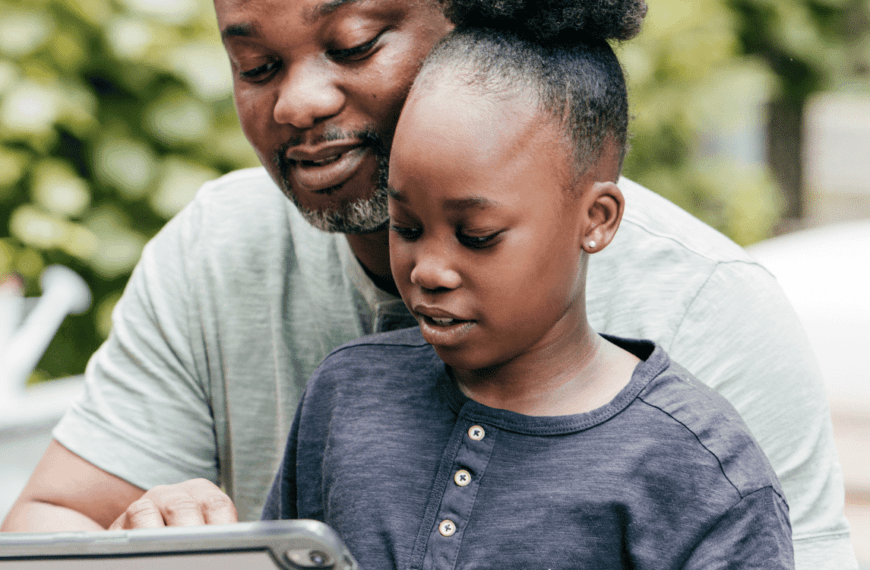
Positive communication is the cornerstone of a healthy parent-child relationship. Listening to our children is essential, but truly understanding their thoughts, feelings, and experiences is equally vital. One powerful technique that can significantly improve communication and foster a deeper level of understanding is reflection. By practising reflection, parents can actively engage with their children’s words and emotions, demonstrating empathy and creating a safe space for open dialogue. In this blog post, we will explore the significance of reflection in parent-child communication, provide practical tips for incorporating it into daily interactions, and illustrate its benefits through real-life examples.
The Power of Reflection
Reflection is a powerful tool that goes beyond merely listening to our children. It involves paraphrasing and restating the speaker’s content and emotions. By reflecting, parents demonstrate that they genuinely value their children’s perspectives and are committed to understanding their messages in their entirety.
Benefits of Using Reflection
- Validation and Understanding: Reflection provides our children with a sense of validation and understanding. By accurately mirroring their experiences, thoughts, and emotions, parents let their children know that their voice matters. For example, if a child says, “I feel left out during recess because my friends always exclude me from their games,” a parent can reflect by saying, “It seems like you feel excluded and lonely when your friends don’t include you in their games.” This validation creates trust and encourages children to share more openly.
- Enhanced Focus: Reflection helps children clarify their thoughts and focus on the topic at hand. By hearing their own words reflected back to them, children can better organise their ideas and engage in deeper introspection. For instance, if a child is discussing a conflict with a classmate, a parent can reflect by saying, “So, you’re saying that the disagreement started when your classmate misunderstood your intentions?” This reflection allows the child to reflect on the situation more clearly and explore potential resolutions.
- Problem-Solving Skills: Children develop problem-solving skills through reflection by evaluating and analysing their experiences. It empowers them to identify areas for growth and explore alternative approaches. For example, suppose a child expresses frustration about consistently struggling with a particular subject in school. In that case, a parent can reflect by saying, “It sounds like you’re feeling discouraged about math because you find it challenging. What are some strategies you think might help you improve?” This reflection encourages the child to think critically and develop their own solutions.
- Strengthened Parent-Child Bond: Reflection creates a safe and supportive environment for children to express themselves. Parents foster a deep sense of trust and strengthen their bond with their children by actively listening and reflecting. It encourages open communication and builds a foundation for a lifelong connection. For instance, when a child shares their excitement about a school project, a parent can reflect by saying, “It sounds like you’re really passionate about this project. I’m so proud of your enthusiasm and hard work.” This reflection acknowledges the child’s efforts and strengthens the parent-child relationship.
Practical Tips for Using Reflection
- Paraphrase and Validate: After your child shares something, paraphrase their words to ensure understanding. For example, if a child shares, “I feel scared when I have to speak in front of the class,” a parent can reflect by saying, “So, you’re feeling anxious and frightened about public speaking?” It demonstrates active listening and validates the child’s emotions.
- Reflect Emotions: In addition to restating the content, reflect the emotions expressed by your child. For instance, if a child expresses disappointment about not making the sports team, a parent can reflect by saying, “It sounds like you feel sad and discouraged because you didn’t make the team.” This reflection acknowledges the child’s emotions and encourages further exploration.
- Avoid Interrogation: When reflecting, avoid bombarding your child with questions or diverting the conversation. The goal is to let them lead and explore their thoughts freely. Use open-ended questions to facilitate self-awareness when needed gently. For example, if a child is discussing a conflict with a friend, a parent can ask, “How do you think the situation could have been resolved differently?”
- Stay on Topic: Focus on one topic at a time to ensure a productive conversation. It allows for a more in-depth exploration of your child’s experiences and keeps the conversation manageable and cohesive. For instance, if a child is sharing their concerns about starting middle school, stay focused on that topic without introducing unrelated subjects.
Conclusion
Incorporating reflection into parent-child interactions fosters effective communication, deeper understanding, and a stronger bond. By practising reflection, parents demonstrate their commitment to actively listening and validating their children’s experiences, thoughts, and emotions. This technique empowers children to articulate their ideas, develop problem-solving skills, and gain self-awareness. Through reflection, parents create a safe, supportive environment that encourages open dialogue and nurtures a lasting connection. Remember, reflection is a journey that requires practice, patience, and a genuine desire to connect with and support your child. Embrace this powerful tool and watch your parent-child relationship thrive.











